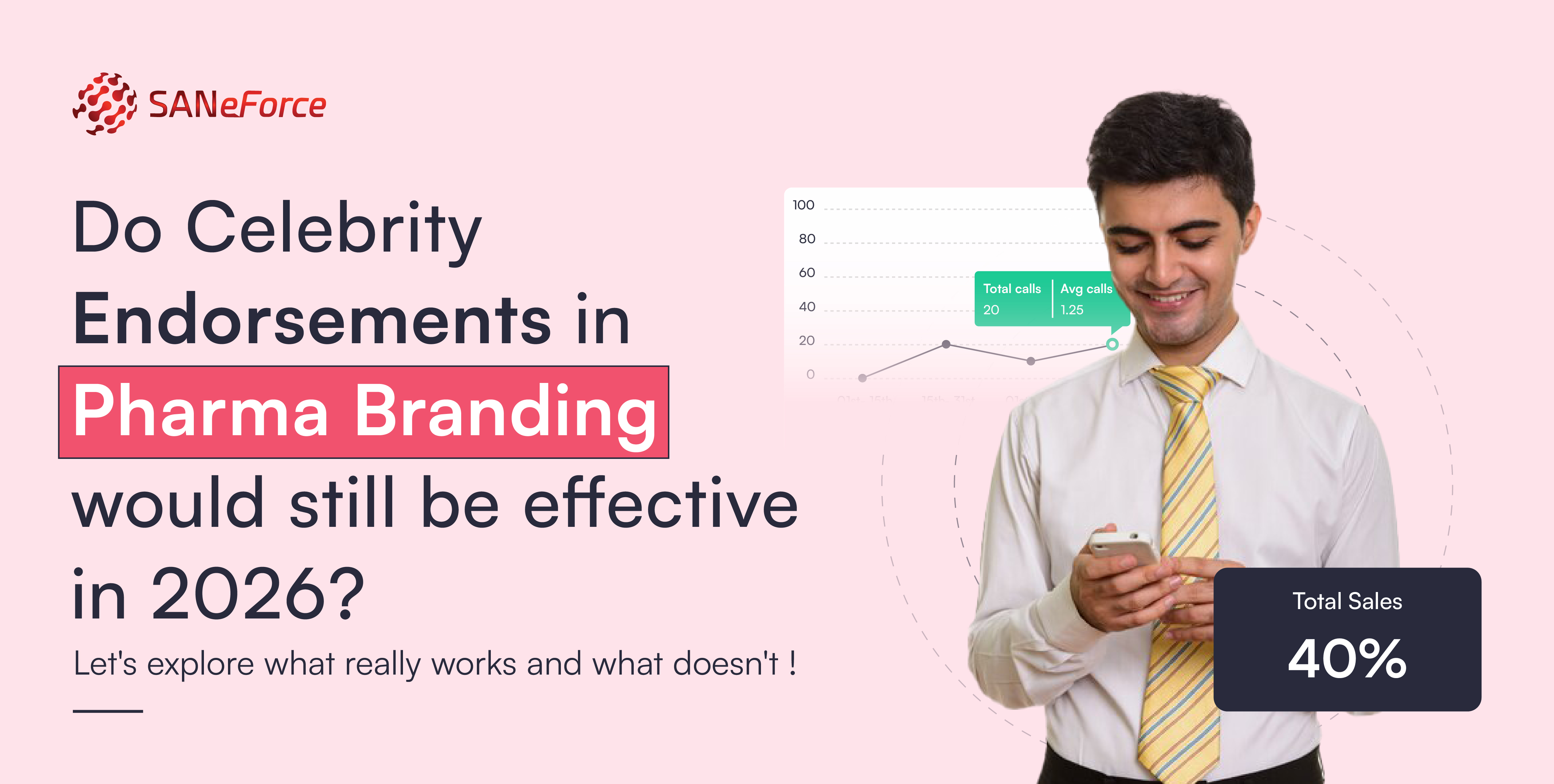
Every day, we’re flooded with different contents in social media. Only a few actually make us pause. But there’s one thing that still makes us stop mid-scroll: a familiar face. A cricket legend talking about cholesterol. A movie star opening up about anxiety, or likewise, anything that he/she speaks. Suddenly, it’s not just a campaign it’s a conversation.
Welcome to the era, where celebrity endorsements aren’t just a marketing trend for pharm, they’re a powerful tool to build trust, spark awareness, and even save lives. But will this approach be sustainable across all sectors, including something as sensitive and regulated as pharma marketing? The real question is—can it hold up where it matters most: credibility and care?
The Sector Shift in Endorsements: It Don’t Work the Same Across Every Industry
Giveaways, contests, early access to health campaigns when it’s coming from a celeb, people pay attention. And when that moment of fun is linked to a health product or awareness drive, it’s a win for both visibility and public health. In 2026, the influence of celebrities is undeniable but does that power translate well into pharma marketing? Let’s see what are it’s pros and cons 👇
📈 Pros:
1. Instant attention:
A known face cuts through the noise.
2. Higher recall:
Campaigns stay longer in memory when tied to a familiar person.
3. Trust transfer:
A celebrity's credibility can positively influence brand perception—especially for wellness, OTC, or preventive care.
📉 Cons:
1. Reputation Fallout:
A celebrity scandal can quickly damage the brand they represent.
2. Forced Content:
Inauthentic endorsements often fail to connect and may harm credibility.
3. Ethical Red Flags:
Using celebrities to promote prescription drugs raises serious ethical concerns.
4. Regulatory Risk:
Pharma ads face strict rules celebrity involvement adds legal complexity.
5. Public Misinformation:
Non-expert endorsements can mislead patients and cause real harm.
Strategic Considerations Before You Sign a Celebrity
1. Brand Fit:
Choose celebrities who reflect the brand’s values and audience.
2. Genuine Voice:
The message must feel authentic not scripted or forced.
3. Stay Compliant:
Adhere to all industry advertising and regulatory standards.
4. Think Long-Term:
Consider both the lasting benefits and potential risks.
So,
Celebrity endorsements can work in pharma—but only with the right fit, real authenticity, and full regulatory awareness. Done right, they inform and inspire. Done wrong, they mislead and damage trust.
Celebrity Endorsements in Pharma: It’s Not Just About Fame
Sure, a familiar face still grabs attention. But in 2026, that attention alone isn’t enough. People want credibility, not just charm. This is especially true for entrepreneurs looking to start a company in pharma, where consumer trust directly impacts patient outcomes.
Here’s the tricky part: Pharma isn’t like fashion or tech. You can’t promote everything freely. In fact, in many countries, prescription drug endorsements by celebrities are restricted or outright banned.
But there’s a smart loophole: when the focus is on awareness or preventive care, the rules ease up. That’s why forward-looking pharma brands partner with celebrities to spark dialogue, build trust, and inform not promote.
We’ve seen this work well in sectors like nutraceuticals, wellness, and vaccines, where the message is about lifestyle, health improvement, or public interest.
While industries like fashion, FMCG, fitness, and tech have long thrived on celebrity power, pharma too can tap into it but only with credibility, relevance, and sensitivity. Fame shouldn’t override facts.
Whether it’s MS Dhoni promoting immunity boosters or regional icons driving vaccine awareness, pharma brands are staying compliant without compromising impact.
Beyond the Hype: What Really Matters?
So how do you know if a celebrity campaign actually worked? Sure, you can look at likes and shares but that’s just the surface.
The real strategy lies in:
1. Boosting Brand Visibility:
Celebrities help pharma brands grab attention in a crowded market.
2. Building Trust Quickly:
Famous faces lend credibility to sensitive health-related products.
3. Driving Measurable Action:
CRM tools convert awareness into real engagement and sales.
4. Streamlining Sales Operations:
Pharma software ensures smooth lead handling and order tracking.
Conclusion
In 2026, celebrity endorsements still hold power but not everywhere, and not in the same way. For pharma brands, success depends on more than just visibility. It requires authentic alignment, strict regulatory awareness, and a focus on patient well-being over pure promotion. When used responsibly, celebrity voices can amplify education and trust. When misused, they risk credibility and care two things no healthcare brand can afford to lose.
